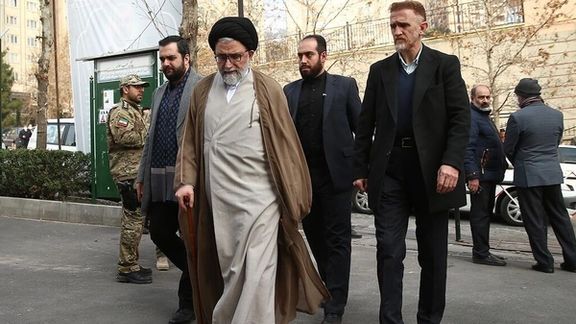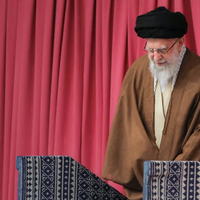While not providing extensive details, state media cited Esmail Khatib as saying that the warning was in response to 'misconduct' displayed by some candidates.
Iran’s Press Supervisory Board also issued a directive concerning the elections, warning that violators will be punished with 74 lashes. The instructions, published on Wednesday, specified that disseminating content aimed at “the boycott of the elections and the lowering of participation” and “organizing any form of unauthorized protest gathering, strike, or sit-in” constitutes a "crime.”
The warnings follow Supreme Leader Ali Khamenei's speech on Monday in which he urged contenders to avoid slander and refrain from smearing each other. Conspicuous confrontations have already emerged among several of the 80 candidates who enrolled during the designated five-day registration period, with the election campaign officially starting June 12 until June 26.
The snap elections have been called following the sudden death of Ebrahim Raisi with First Vice President Mohammad Mokhber taking the helm as acting president on the orders of Khamenei.
On Sunday, Tasnim, a news outlet affiliated with the Islamic Revolutionary Guard Corps (IRGC) and reportedly a supporter of Mohammed Bagher Ghalibaf, the speaker of parliament, criticized Vahid Haghanian, a prominent figure in the office of the Supreme Leader, without explicitly naming him, asserting that he is not the Supreme Leader’s preferred candidate.
"Some individuals have registered for the presidential race despite lacking relevant experience and executive responsibility. More concerning, their campaign materials imply endorsement by the Supreme Leader's office, a tactic that is unethical and undermines the dignity of this esteemed institution," Tasnim wrote.
The next day, Haghanian responded that the news agency uses military funds for matters unrelated to the public interest.
“People recognize that all these desperate efforts by the passive media in the most sensitive areas of the country are rooted in their candidate’s defeat,” the statement read.
The ongoing process of narrowing the circle of trusted regime insiders, criticized as political "purification," seemingly aimed at preparing for the eventual death of the 85-year-old Supreme Leader, has intensified power struggles among the conservative spectrum.
Last week, physical confrontations erupted in parliament between supporters of two MPs, one reportedly failed the credential verification to remain a parliamentarian.
Record low turnout for the elections is expected amid mass discontent and disenfranchisement. In the March elections, while official figures claimed around 40 percent of the population came to the polls, independent figures suggest closer to 10. In the last two rounds of presidential elections figures have also seen Iranians boycott the polls, aware that ultimately the Supreme Leader himself will decide the incoming Presidential candidate.
The last presidential elections in 2021 saw the lowest recorded turnout since the founding of the Islamic Republic. While official figures claimed around 41 percent voted, like March, the real numbers are believed to have been much lower.








